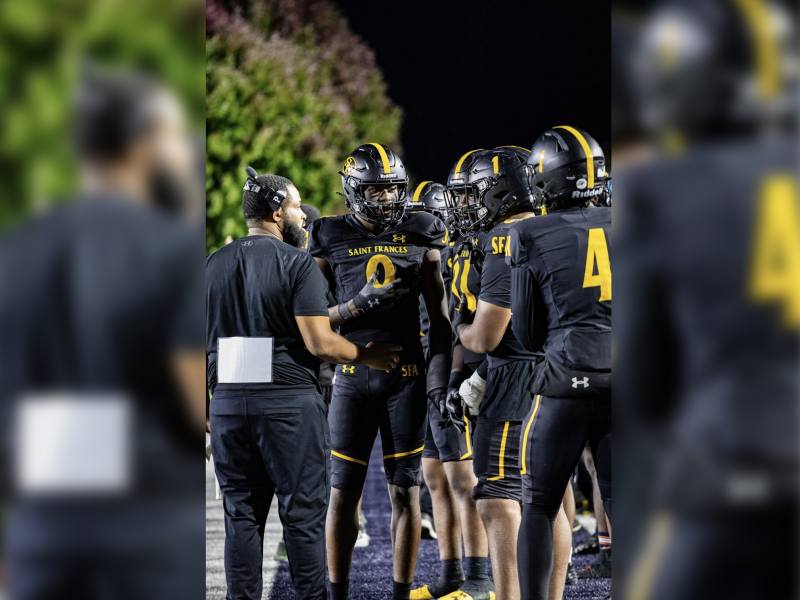In a game that saw the Maryland football team play its first double-overtime period since 2000, no one could have expected how the Terps pulled out a 30-24 win over Central Florida on Saturday night.
With starting quarterback Perry Hills on the sideline — out of the game after suffering an injury on his 16th carry — freshman signal caller Tyrrell Pigrome took his only snap of the game 24 yards to the house, weaving his way past Knights defenders en route to scoring the touchdown that helped the Terps end their nonconference slate with a 3-0 record.
It’s hard to say what will come out of Pigrome’s unexpected performance. Coach DJ Durkin said after the game he believes Hills hurt his shoulder but doesn’t know the severity of the injury. If Hills is healthy after the bye week, he’ll likely still be the starter when Maryland opens Big Ten play against Purdue on Oct. 1.
Instead, here’s what we can take away from the Terps’ first real test of Durkin’s tenure.
1) Hills’ will
Running the ball is what led to Hills injury, but what the redshirt senior did with his legs was a large part of the Maryland offense.
Aside from the Knights sacking Hills five times for a combined -35 yards, Hills rushed for 64 yards, putting him second behind freshman running back Lorenzo Harrison, who had 77 yards on 15 carries.
Hills was Maryland’s sole production on its drive in the first overtime. The Pittsburgh native rushed for six yards and then 14 before sprinting across the goal line from five yards out to the Terps ahead momentarily.
He wasn’t as effective through the air, finishing 10-for-23 for 127 yards, but Hills, once again, managed the Terps up-tempo offense. Through three games, he has yet to turn the ball over. This comes a year after he threw 13 interceptions in nine appearances.
When the Knights pressured him, which they did often Saturday night, Hills either found a receiver or threw the ball away. When Hills couldn’t escape the opposing defense, he held onto the ball. His ball security helped Maryland finish without a turnover for its third straight game. Central Florida had four giveaways, the last of which led to the Terps’ game-winning score.
2) Running rampant
Offensive coordinator Walt Bell said earlier this week it would be hard to run the ball against the UCF defense, but the Terps compiled rushing totals similar to their first two contests. Maryland rushed for 277 yards per game during that stretch, and the team followed that performance with 246 yards on the ground and four rushing touchdowns.
While running back Ty Johnson (seven carries, 47 yards) started, Harrison carried the load. He averaged 5.1 yards per carry, and continues to be Maryland’s most effective back early in the season.
Senior running back Kenneth Goins Jr. looked explosive in limited carries. He had 34 yards on three carries, one of which went for a 16-yard touchdown to put the Terps up, 17-14, late in the third quarter.
3) Drained defensively
After giving up 320.5 yards per game the first two contests, the Terps allowed UCF to gain 455 yards of total offense.
More than half of those yards came from freshman quarterback McKenzie Milton, who was making his first career start. He finished 21-for-36 for 260 yards and a touchdown.
The defense forced Milton into four turnovers (three fumbles and one interception), but there were several plays where Milton escaped the rush and found a receiver.
At times, it appeared the Terps were struggling to keep pace with the Knights up-tempo offense, but they did enough defensively to secure the win.



